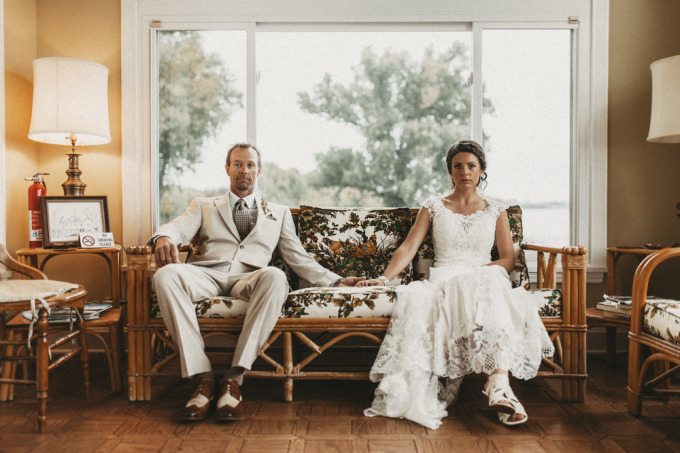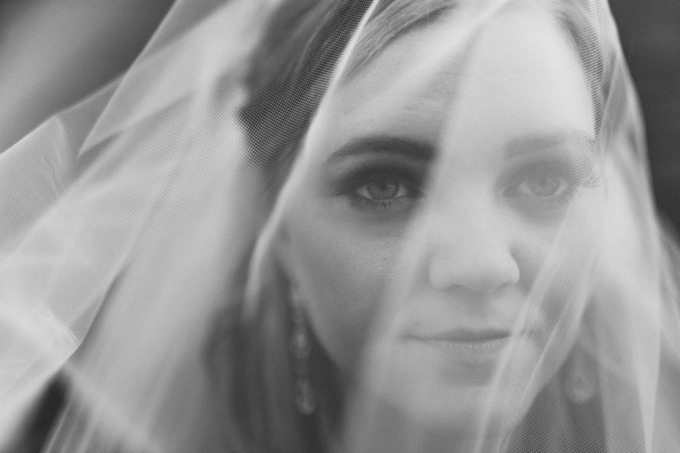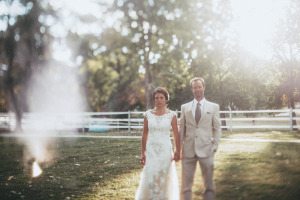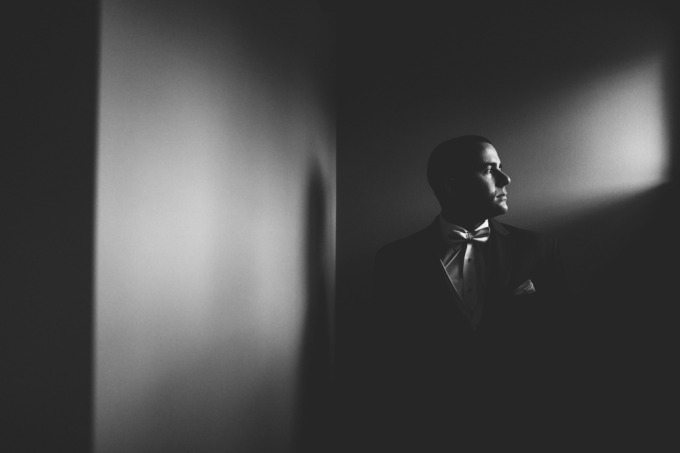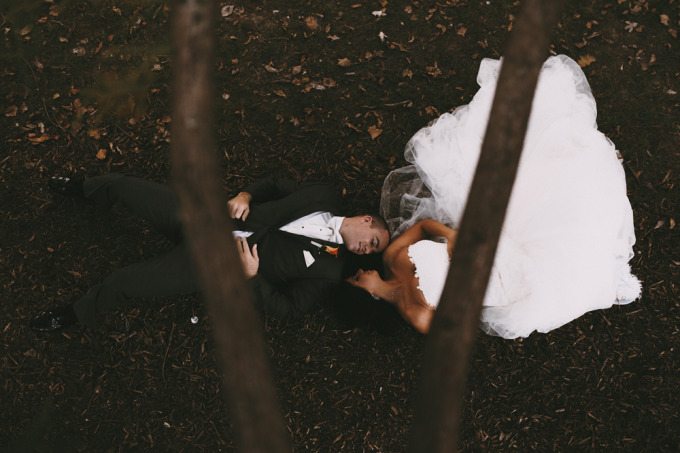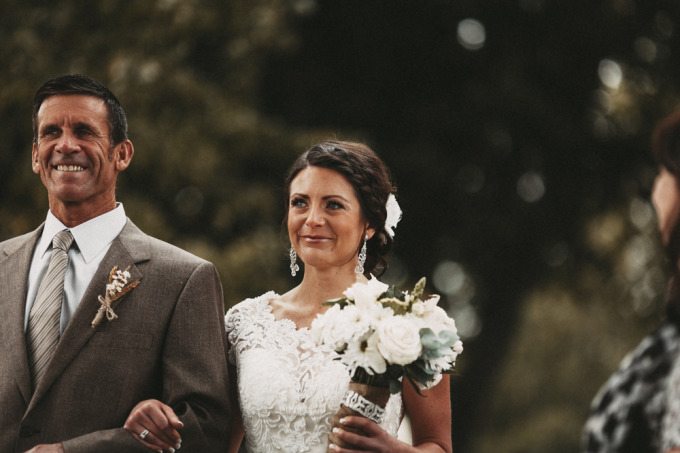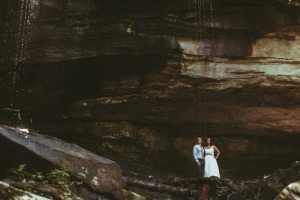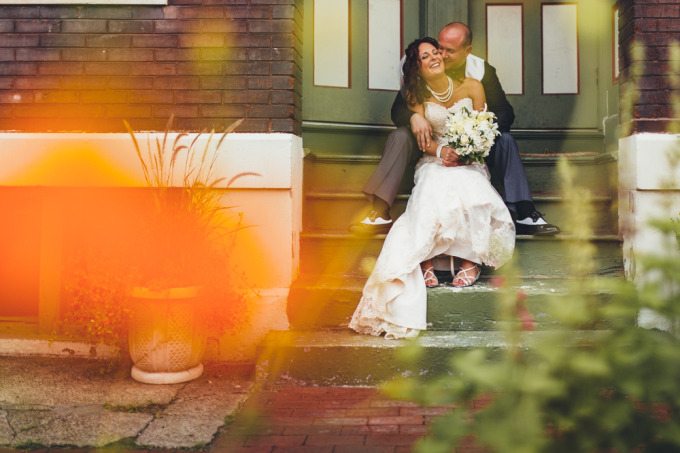Last Updated on 10/24/2014 by Chris Gampat
All images by Jacob Loafman. Used with permission.
The first year is always the toughest both as a business owner and as a photographer. It’s all about understanding yourself as a shooter, making sure that your business is profitable, and adjusting to the landscape. We found photographer Jacob Loafman and upon hearing that he has been shooting for just under a year, we were quite shocked to see the incredible quality of his work and his success–which is seemingly rare amongst many budding professionals.
Jacob attributes his success partially to his tagline: “Let’s create together.” He admits that the business side was incredibly tough, and that his beginnings were still very humble.
Phoblographer: How did you first get into photography then figure out that you wanted to shoot weddings and engagements?
Jacob: I, probably similar to many other photographers, took a couple of classes in high school and really enjoyed the process of photography. The shooting, the interacting with subjects, the darkroom work, all of it. I also took a couple of semesters in college, then life just happened, as it tends to do, and I fell out of it for quite a long time. I was on Reddit one day and saw a great post of some surreal self-portraiture work by Kyle Thompson. His work sparked those old photography flames I once had. I picked up a Canon XSi w/ kit lens and started creating self-portraits. From there, I just kept shooting and progressing a little. I would post my work on Facebook to see how it would be received. It was received…mmm….okay. It was pretty weird stuff, haha.
Regardless of said weirdness, it did create interest in friends and family wanting me to photograph their life events. I was shooting family sessions for about fifteen months or so, for free of charge or very little, then decided to start charging for my services. It was a very low rate, like $100 or something, I think, but it was a start. After another 6 months of doing these hundred dollar sessions, I noticed my work was getting stronger, and came to realize I could give this photography business a real shot. So, I met with a lawyer friend of mine and she helped me write up contracts and legal documents to form an LLC. I’ll never forget that day. It was pretty special. From there, I created a Facebook page to promote my business. This led to my friends asking me to shoot their wedding for them. It was my first wedding, and I really, really enjoyed being part of the day and helping document their story. I was instantly hooked.
Phoblographer: Every photographer is incredibly nervous on their first wedding. What was yours like?
Jacob: Oh, boy. While I did really enjoy it, it was very, very intense inside my mind. Lots of second guessing myself, chimping every single frame, and just lots of nerves. I think I shot about six thousand photos or something bonkers like that. Oh, and I also dropped my 70-200mm f/4 L lens on the ground and busted the focus ring. It was my third day with the lens, I believe. I was angry, sure, but I was the one that left the bag open. My fault, moved on.
I just threw myself into the fire after that happened. Of course, I lucked out that the entire wedding party were my friends, but a wedding is a wedding, no matter who it is. It is important. I was not good at directing people AT ALL. I would just stand there, say lots of ‘ummms’ and after twenty or thirty awkward seconds of silence, I would position the subjects where I thought looked best. I luckily read about bouncing flash prior to the wedding day, so the reception photos turned out better than I ever imagined they would. They were the only shots I was really happy with after reviewing them. The bride and groom ended up enjoying all of the photos, so that was all that really mattered at the end of the day.
In short, I made a lot of mistakes, but learned from them.
Phoblographer: Tell us about the gear that you work with and why you chose it.
Jacob: I shoot Canon bodies. I picked up my first camera, the XSi, on eBay. It was just a good deal, so I didn’t really look too much into which manufacturer I wanted. I just found a good deal on a DSLR and bought it. So, I’ve just kind of stuck with their bodies ever since, seeing as I know the Canon bodies front to back now.
My current gear list:
Canon 5D MKII
Canon 6D
Canon 5D Classic
Sigma 35mm f1.4 Art
Canon 40mm f2.8 pancake
Sigma 50mm f1.4 (1st gen)
Canon 85mm f1.8 USM
Canon 135mm f2.0L
A couple of old 50mm lenses from film bodies for free-lensing
Yongnuo flashes and triggers
I would say I shoot 75% of my weddings with the 35/135 combo, and most of the day is shot with the 35. It’s a large gap between focal lengths, but I find it works for me.
Phoblographer: When you consider everything that a wedding photographer actually does as part of the business, shooting is the simple part. What do you think of the business side of booking clients and of the long nights and days involved in the editing process?
Jacob: Truthfully, I was terrible at the business side of things for a long time, and still am in certain aspects, but I’m getting better. I didn’t realize how much administrative work actually went into running a photography business. The invoicing, the contracts, the emails, the finances, the receipts. There is a LOT that goes into it. In fact, I just started using studio management software a few months ago. It has been a life saver for me by freeing up a lot of my time to concentrate on marketing, shooting, networking, and editing. It got me back to enjoying the business side of things a little more.
I still keep a full time day job, so long nights are kind of my thing. It’s 1am right now, actually. I really enjoy the editing process, not so much the culling, though. I use Lightroom, so the ability to have a preset applied on import has saved me a ton of time on the editing side of things. It just took me a while to create a preset I was happy with. Most of my editing and culling is completed during weeknights. It is the only time I truly have to get things done. It is rough not getting much sleep, I average about four hours per night, but that’s a sacrifice I’m willing to make right now. If you want to be successful at something, some type of sacrifice is usually involved.
Phoblographer: Talk to us about how you market yourself and bring in new clients.
Jacob: My tagline is “let’s create together.” I want the clients to know that they are going to be involved in the creating process with me. While the ideas may be mine, their expressions, moods, clothing, and just overall style play a huge part in the creation of a photograph. I want them to feel like they are truly involved in everything. I really strive to create artwork, and they are the focal points. I mean, I could not do any of this without them. They are everything to me.
“Truthfully, I was terrible at the business side of things for a long time, and still am in certain aspects, but I’m getting better. I didn’t realize how much administrative work actually went into running a photography business.”
Currently, I market myself through social media pretty heavily. Facebook has been the biggest player, for sure. I try to post content daily, even if the photo is an older landscape shot or something non-wedding/non-engagement related. Keeping my business page very active has proven to be very successful for me. I have booked every client in 2014 solely through Facebook. It is a very powerful marketing tool, and I take full advantage of it. I also interact with my “fans” on both Facebook and Instagram. I learned the importance of this by following other big time photographers on those platforms. I mean, it was pretty awesome to see something like, “Sam Hurd liked your comment” or “Ryan Muirhead replied to your comment” pop up in your notifications on Facebook. It made me feel great, so I followed suit. Plus, interacting with people on social media is a blast, anyway. I have always loved it.
I just started advertising with one of the big wedding sites last month, so we’ll see how that goes. I plan to focus on marketing pretty aggressively in 2015. Social media is wonderful, but I need to use the other tools that are out there, as well. It’s all about getting your name out there, however you can.
Phoblographer: What was your favorite image that you’ve ever shot at a wedding and tell us the story behind it.
Jacob: That is a tough question, but I’m going to go with a simple shot of the father walking his daughter down the aisle from a few weeks ago. There’s nothing fancy to the shot at all, but it really brings to light the importance of what we do as wedding photographers, catching those emotions. The father with a big smile on his face, just gushing with happiness for his daughter. The daughter crying happy tears as she approaches the love of her life. It is an incredible thing. Both sides of happiness being shown in the same photograph. It is a photo I revisit quite often, as of late.
The emotions that happen on a wedding day can be very intense, where you are really taken back for a second by what is happening around you. It makes you feel, um, human, I guess is the best way to describe it? You feel like a photographer most of the day, but there can be one moment that really just brings you down to earth and reflect on what you are witnessing. The raw, powerful, sometimes striking emotions of a human being…..and you are lucky enough to press that button to set it in stone. It will live on in their minds, but you make it live on in their hands, or on their walls. That is pretty powerful, in my opinion. I truly feel like the luckiest person in the world while shooting a wedding, and I’m not the one getting married. It really makes your heart full, if you pay close enough attention.
Phoblographer: What are a couple of questions that you always ask the clients on the first meeting?
Jacob: Are you by chance serving tacos for your dinner? But really, this is a great question.
1) How did you guys meet?
-A simple question, but I want to get to know clients on a personal level. We are not sitting in an office building having an interview. We are potentially going to be working together on one of the biggest days of their lives. So, by asking this, it gets them talking and reminiscing about their story and their lives. I find that I learn about the things they like, their sense of humor, how they interact with each other, all of these types of things help build trust. It shows that you are interested in them as people, rather than JUST potential clients. I am always genuinely interested in getting to know my clients.
“Keeping my business page very active has proven to be very successful for me. I have booked every client in 2014 solely through Facebook. It is a very powerful marketing tool, and I take full advantage of it.”
2) Do you follow my work?
-I want to make sure they know my style of photography, since I would consider it a bit non-traditional. I like to take risks with shots and try different things. For example, I just recently shot a wedding and used LED fiber optic hair barrettes for a multiple exposure idea I had in my head all week long leading up to the wedding. It took a bit of time to pull off, but the bride and groom knew my style going in, so they were more than willing to trust me with my ideas. So, while I do have some traditional, classic shots in a wedding day, I also like to try things out, which takes a little patience from the bride and groom. It is all about trust.
While it is usually safe to assume they do follow my work, sometimes they inquire with me just by receiving a recommendation from a mutual friend on Facebook or something. Which is sometimes, recommendation from friend then immediate inquiry. Which is fine, but I have actually had quite a few that did not see my work until I showed them at the first consultation, so I really find this is an important question to ask. I just want them to know what they are getting if they hire me and how I go about capturing their wedding day.
Phoblographer: Give us a tip for any aspiring wedding photographer out there.
Jacob: As someone that is still an infant in the wedding photography world……
Do not get caught up in comparing your work to other photographers’ work. Be 100% you. Only compare yourself to previous versions of yourself. I struggled with this for a long, long time. I saw a comment on one of Nordica Photography’s photos on Facebook where someone asked a question along the lines of, “How do I create a shot just like this?” One of the Nordica guys responded with something like, “Don’t worry about what others are doing. Do what you like.” That really struck a chord with me that day. I would constantly see all of these amazing photos from these amazing photographers and my first thought was, “Man, I wish I was that good.” Now, I am learning that I CAN be that good, but it is MY version of good, nobody else’s. Every single one of those amazing photographers had to grow and progress over time. Time and hard work will get you there, if you want it. I am in the hard work stage right now, but I want to be great, so it is worth it.
So, while I occasionally look to others’ work for inspiration, I no longer look for comparison. It was quite a relief once I started concentrating on my work, rather than striving to create like someone else.
In short, DO YOU. It will be frustrating at times. You will experience some ruts. You will create some bad photographs. Everyone goes through these things, whether they are photographers or not.
Just realize that there is only one you and THAT is who the world deserves to see.


